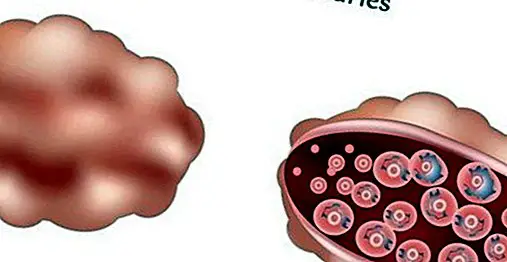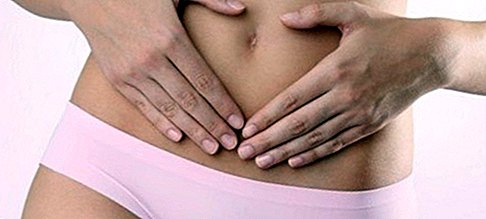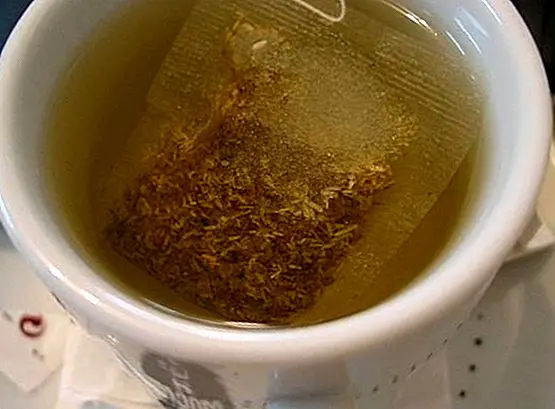Ovarian polycystosis: symptoms, causes and medical treatment
The polycystosis ovarian it is a disorder also known as the Stein-Leventhal syndrome and it is considered one of the most frequent endocrine diseases in women during their reproductive stage, affecting a percentage of women between 5 and 10% who go through this stage.
This sickness occurs due to an endocrine disorder that produces hormonal imbalances. The ovaries in their normal functioning of each month undergo changes, increase in size, change and sometimes do not ovulate properly, in these cases they keep in their bags filled with liquids called cysts.

The causes why these cysts are formed are still unknown, although they may occur as a result of a hormonal disorder that prevents proper ovulation and promotes the formation of these fluid sacs.
This syndrome is also considered as a genetic disease that does not pose any risk to the health of the woman nor does it affect her reproductive capacity, as long as the disorder is not serious, in which case it may even require the removal of part of the ovary. .
Symptoms of polycystic ovary
When the woman is affected by this disease, they usually present a series of symptoms such as:
- Irregular menstruations.
- Abundant menstruations.
- Absence of menstruation.
- Excess hair on the face, chest and abdomen.
- Obesity.
- Hypertension, diabetes, high cholesterol.
- Abdominal pain sometimes, especially when the cysts are large.
- Acne, seborrhea, hair loss.
On many occasions, polycystic ovary is discovered by the gynecologist in the annual review and sometimes it is detected without having presented the aforementioned symptoms.

The gynecologist by performing an ultrasound observes how the ovaries are, seeing their appearance, if there are cysts or not, and even measuring their size.
Treatment of polycystosis ovarian
The treatments to treat this disease can be several depending on the symptoms that have to be treated:
- To regulate menstrual cycles, the gynecologist usually prescribes oral contraceptives.
- In order for the organism to reabsorb the cyst, the treatment is based on hormones.
- To treat acne, hair is usually treated with contraceptives and antiandrogens.
- For cases where there is obesity, hypertension, high cholesterol or diabetes treatment begins by reducing body weight.
When it comes to more serious cases, other interventions are needed, such as electrocautery of the cysts or removal of part of the ovary (partial removal of the ovary).
As a result of some symptoms associated with this syndrome some women who suffer from it can have problems to become pregnant, these symptoms are, the absence of the rules by not ovulating regularly every month or even in cases where menstruations are irregular.
Fortunately, today there are treatments so that the woman suffering from this syndrome can ovulate with what hopes of getting pregnant increases. This article is published for informational purposes only. It can not and should not replace the consultation with a Physician. We advise you to consult your Trusted Doctor.


